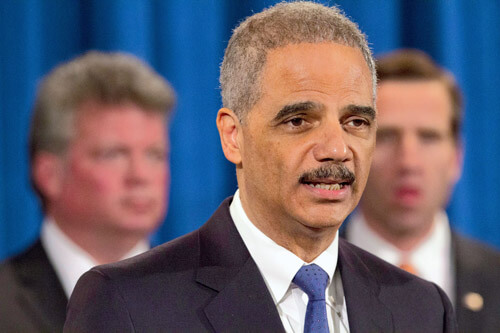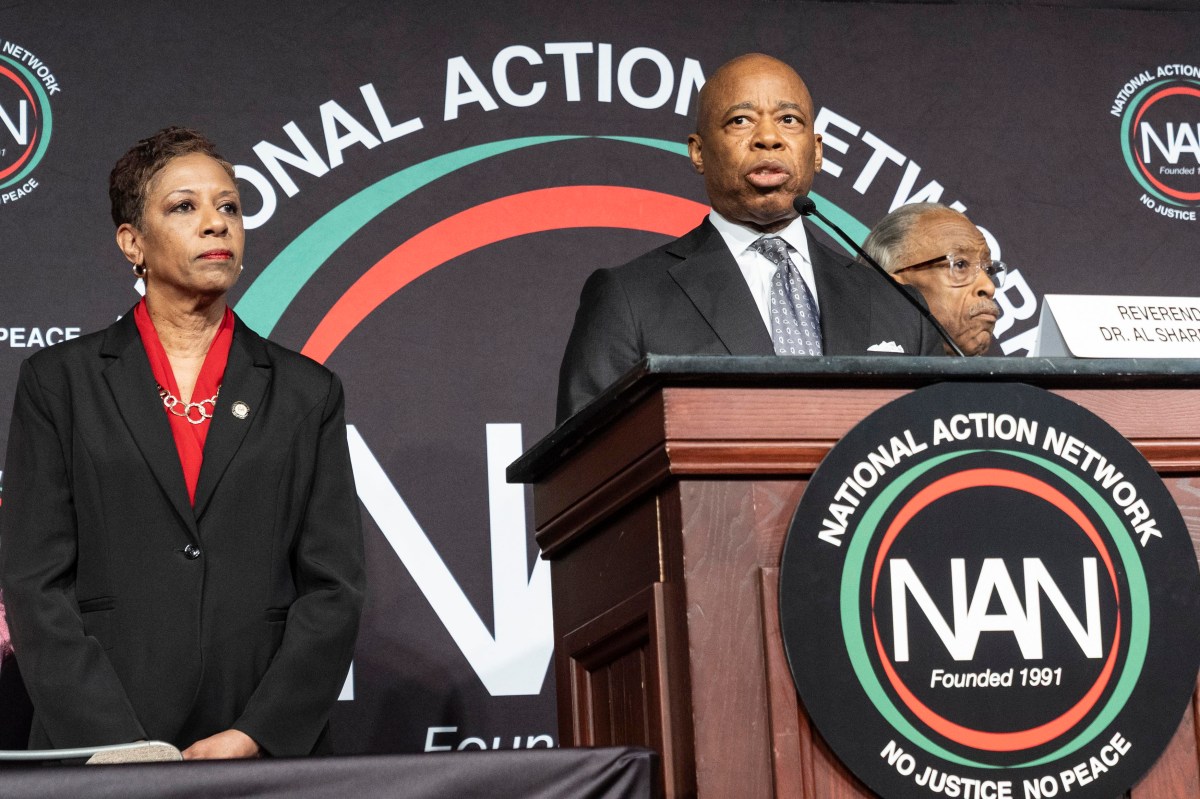WASHINGTON (AP) — The Obama administration on Tuesday accused Standard & Poor’s of refusing to warn investors that the housing market was collapsing in 2006 because it would be bad for business.
The civil charges against the credit rating agency were the administration’s most aggressive action to date against those deemed responsible for contributing to the worst financial crisis since the Great Depression. They followed years of criticism that the government had failed to do enough.
The Justice Department accused S&P of knowingly inflating its ratings of risky mortgage investments that helped trigger the crisis. It’s demanding $5 billion in penalties.
According to the lawsuit, S&P gave high marks to the investments because it wanted to earn more business from the banks that issued them.
“This alleged conduct is egregious — and it goes to the very heart of the recent financial crisis,” Attorney General Eric Holder said at a news conference.
Experts said the lawsuit could serve as a template for future action against Fitch and Moody’s, the other two major credit rating agencies.
High ratings from the three agencies made it possible for banks to sell trillions in risky investments. Some investors, including pension funds, can buy only securities that carry high credit ratings.
S&P, a unit of New York-based McGraw-Hill Cos., called the lawsuit “meritless.”
“Hindsight is no basis to take legal action against the good-faith opinions of professionals,” the company said in a statement. “Claims that we deliberately kept ratings high when we knew they should be lower are simply not true.”
According to the lawsuit, S&P recognized that home prices were sinking and that borrowers were having trouble repaying loans. Yet these facts weren’t reflected in the safe ratings S&P gave to complex real-estate investments known as mortgage-backed securities and collateralized debt obligations, the lawsuit alleges.
At least one S&P executive who had raised concerns about the company’s proposed methods for rating investments was ignored.
S&P executives expressed concern that lowering the ratings on some investments would anger the clients selling these investments and drive new business to S&P’s rivals, the government claims.
Holder called the case “an important step forward in our ongoing efforts to investigate and punish the conduct that is believed to have contributed to the worst economic crisis in recent history.”
The $5 billion in penalties the government is demanding would amount to several times the annual revenue of McGraw-Hill’s Standard & Poor’s Ratings division. The ratings business generated $1.77 billion in revenue in 2011. McGraw-Hill’s total revenue was $6.25 billion.
The fraudulent ratings contributed to the failure of a California credit union that required a multibillion dollar government bailout, the lawsuit said. It said Western Federal Corporate Credit Union bought the investments because of S&P’s endorsement.
Western Federal was among five wholesale credit unions that regulators took over in 2009 and 2010. To wind them down, the National Credit Union Administration borrowed $11.2 billion from the Treasury. It’s repaid about $6.1 billion. The agency said the costs will be paid by the credit union industry and Treasury will be fully repaid.
Critics complained that the government’s action Tuesday involves civil rather than criminal charges. Criminal charges, which would carry the possibility of jail time, would be harder to prove.
Former Sen. Ted Kaufman, D-Del., who served on a panel that investigated the financial crisis, argued that actions by S&P and its employees amounted to criminal fraud.
“If you’re selling something that you’re saying has a certain level of safety, and you know it doesn’t have that level of safety, that’s fraud,” Kaufman said.
He said big civil fines just end up hurting shareholders.
“The executives, the folks that did it, aren’t going to pay anything,” Kaufman said.
A lack of stronger evidence probably prevented Justice from seeking criminal charges against the company or its employees, said Jacob Frenkel, a lawyer formerly with the Securities and Exchange Commission.
Still, the complexity of the case could make it a model for future lawsuits against the other rating agencies, he said.
“I think the S&P case is likely to be a template for use against the other rating agencies as long as the government believes it has the evidence to make its case,” Frenkel said.























